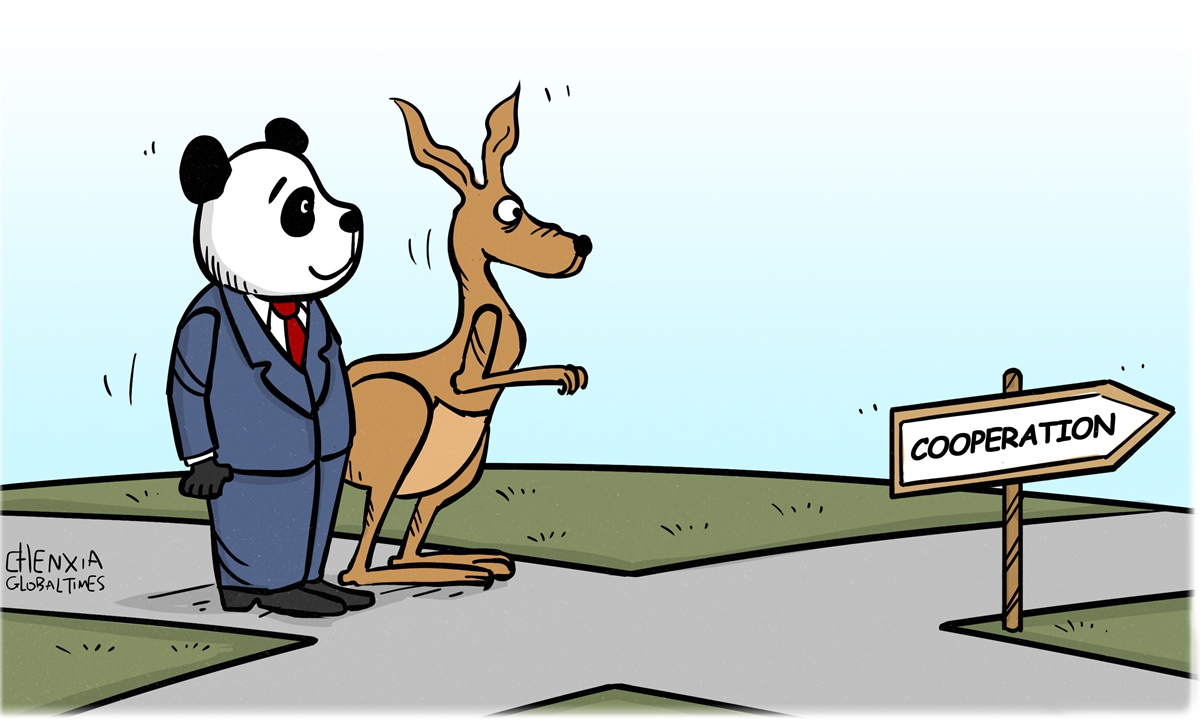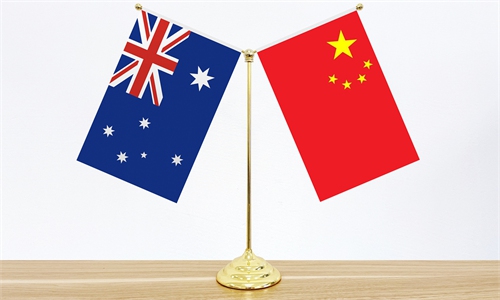
Illustration: Chen Xia/GT
Australian customs data showed that Australia's exports of cotton to China surged to a nine-year high of 61,319 tons in August, Reuters reported on Friday.The data came just a few days after a South China Morning Post report disclosed that two internal studies conducted by Australia's Department of Foreign Affairs and Trade (DFAT) and its treasury department concluded that "no other markets could replace China as a market for Australian commodity exports."
The common background of both the customs data and internal studies is that economic and trade cooperation between China and Australia has thawed and gradually moved toward normalization amid the continuous warming of bilateral relations.
The hard-earned momentum should be cherished and consolidated with more efforts and sincerity.
While the previous Morrison government caused great damage to China-Australian relations by demonizing and antagonizing China, pushing bilateral trade into a downward spiral, the Albanese government appears to have recognized the importance of China to Australian trade and shown a willingness to improve bilateral ties.
Regarded as a member of the Western camp, Australia is closer to Asia economically and geographically. Such a dual positioning was originally supposed to be an advantage that left Australia well-placed to be a bridge of communication between the West and Asia. But the previous Morrison government wanted to tear down the bridge to show its loyalty to the US, which unsurprisingly seriously damaged Australia's own interests. Now most Australians have seen clearly that blindly following the US won't bring gains, only losses.
For instance, when Australia's exports to China were affected, the US took the opportunity to fill the market gap left by Australian businesses in China. This explains why the Albanese government has sent signals about developing friendly relations with China to thaw bilateral relations.
It's of great significance to both sides that bilateral relations can shake off the unhealthy and abnormal state that has existed in recent years. As is known to all, after decades of bilateral trade development, China became Australia's most important trading partner. This is because as a massive consumer market, China has a huge demand for primary products, while Australia exports a lot of primary products such as iron ore, coal, beef and cotton.
Since China is an irreplaceable market that consumes a huge amount of commodities, its trade relations with Australia will directly affect the recovery and growth of the latter's economy.
In the meantime, Australia is important to China given its aim to create a cooperative external environment. China and Australia are members of the Regional Comprehensive Economic Partnership, and both have played important roles in many cooperation mechanisms in the Asia-Pacific region. So warming ties are conducive to China's international cooperation environment.
Of course, if Australia wants to participate more actively in Asian affairs and further improve relations with Asia, it also needs a better relationship with China so that it can play a better role as a bridge.
Although Australia's China policy has showed positive signs of improving, it may still face potential challenges, such as AUKUS. Therefore, whether bilateral trade relations or Australian exports to China can be immune from the twists and turns in China-Australia relations will depend on the sincerity expressed by Canberra in terms of restoring political mutual trust.
If the Albanese government can make more efforts to restore a relationship of mutual respect and trust and consolidate its regional role as a bridge, then China-Australia trade will certainly be normalized with barriers resolved.
So it is hoped that Australia can be more proactive in creating a friendly atmosphere for bilateral economic exchanges, especially when it comes to issues left over from the past, such as changing some unfair economic and trade practices toward Chinese companies, or encouraging Chinese investment in Australia.



